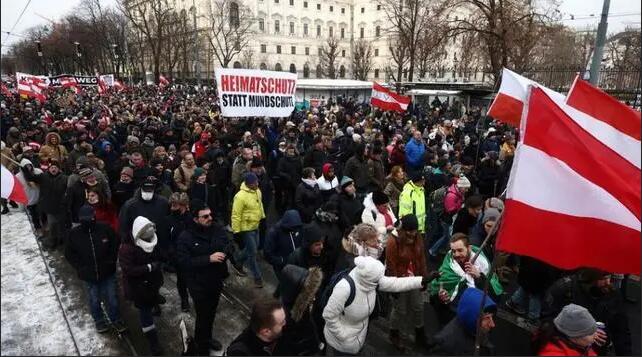Tens of thousands of protesters have poured into the streets across Russia today to call for the release of government critic Alexei Navalny. Mr. Navalny was arrested last weekend upon his return to Russia. He'd been recuperating in Germany from a poisoning attempt that he blames on Russia's government.
NPR's Lucian Kim is in Moscow and joins us. Lucian, thanks so much for being with us.
LUCIAN KIM, BYLINE: Thanks, Scott.
SIMON: You've been out on the street among protesters. What have you seen and heard?
KIM: It was pretty amazing scene. As I got closer to Pushkin Square in the city's center, I saw streams of people heading there. And on the other side of the street, there were police trucks and city buses filled with riot police. I spoke to one protester. Her name is Maria Nechayeva. She's a lawyer at an IT company. I asked her if she's angry, especially since Navalny's team has released a video claiming Putin built himself a palace worth $1.4 billion.
MARIA NECHAYEVA: Yes, I'm very angry because, well, actually, it's that taxpayer's money, it's my money. I also pay taxes, and I don't want my taxes to be used for someone's castle.
KIM: I asked her if she wasn't afraid, given the heavy police presence.
NECHAYEVA: They can't put everybody in jail. So there are many people, and I don't think that we have enough jails to put everyone in there.
KIM: So even as we were talking, there were arrests of protesters, including Navalny's wife, Yulia.

SIMON: These protests were to be across the country, Lucian. What's the turnout been like in other places?
KIM: Scott, it's just been incredible — really a wave of protests rolling across Russia's vastness today, beginning in the Pacific port of Vladivostok seven time zones away from Moscow, and then just sweeping across the rest of the country, including many smaller provincial cities. What's important to note here is that Navalny is the first real national opposition leader. Three years ago, he was barred from running for president against Vladimir Putin. But what he did succeed in doing was opening campaign offices across the country. He traveled to far-flung cities, and he really behaved like a real national politician. His following is national, and people follow him on social media.
SIMON: Well, and that brings up TikTok. Because today's actions were promoted on TikTok, has that turned out more young people?
KIM: Absolutely. TikTok has played a huge role because of Navalny's following among young people. He speaks their language, he knows their memes, and he's constantly putting out new content on social media. Even from jail, his team is working. That video that his team released this week on Putin's alleged secret palace has been viewed more than 60 million times since Tuesday on YouTube.
TikTok and other social media were told by authorities to take down content calling on young people to attend these illegal rallies, but that doesn't seem to have had much effect and may have given the protests even more publicity.
SIMON: NPR's Lucian Kim in Moscow, thanks so much.
KIM: Thank you, Scott.












